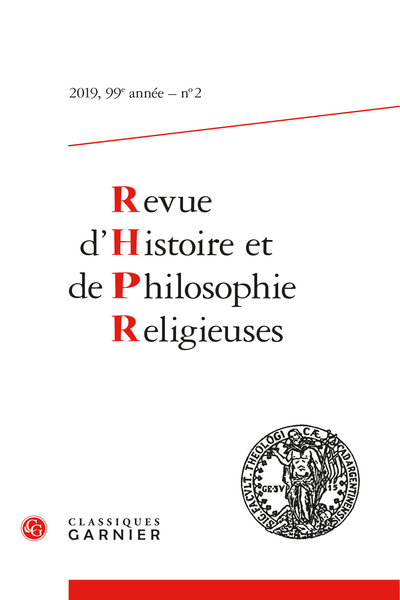
Résumés
- Type de publication : Article de revue
- Revue : Revue d’Histoire et de Philosophie Religieuses
2019 – 2, 99e année, n° 2. varia - Pages : 325 à 327
- Revue : Revue d'Histoire et de Philosophie religieuses
- Thème CLIL : 4046 -- RELIGION -- Christianisme -- Théologie
- EAN : 9782406094142
- ISBN : 978-2-406-09414-2
- ISSN : 2269-479X
- DOI : 10.15122/isbn.978-2-406-09414-2.p.0123
- Éditeur : Classiques Garnier
- Mise en ligne : 24/06/2019
- Périodicité : Trimestrielle
- Langue : Français